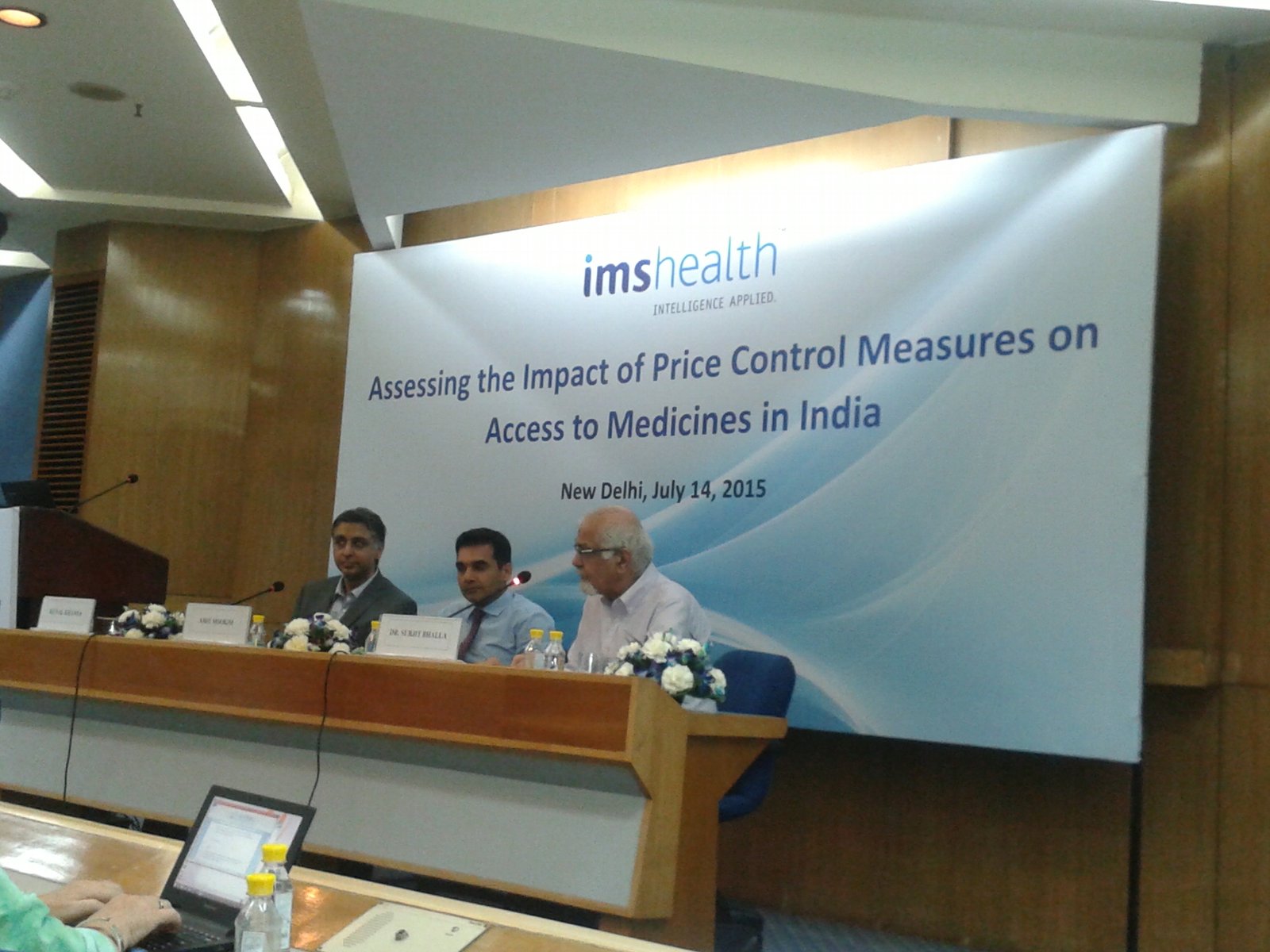Price control has failed to improve access to medicines: IMS Health report
July 15, 2015 | Wednesday | News | By Rahul Koul Koul
Price control measures not best solution for access to medicines: IMS Health report
The report was released at an event in Delhi on July 15, 2015 by the noted economist Dr Surjit Bhalla.
As per the study, 'Assessing the Impact of Price Control Measures on Access to Medicines in India', such a strategy is ineffective and can be counter productive as well. The price control is neither an effective nor sustainable strategy for improving access to medicines for Indian patients, says the report.
The report suggests a combination of healthcare financing and non-financing measures such as promoting joint and bulk procurement mechanisms and investment in capacity building be adopted by the government to address the issues of access and affordability.
Noted economist and author, Dr Surjit Bhalla who released the report remarked, "In my experience, the poor are the last to benefit from price control interventions. Not surprisingly, this study shows that high-income patient populationss have been the main beneficiaries of DPCO 2013. In addition to price control, tariffs on essential medicines completely defeat the goal of making such medicines available to low income patients."
Commenting on the findings of the report, IMS Health South Asia General Manager Nitin Goel said: "Price control has limited impact on improving patient access and, furthermore, is not aligned with the requirements of a vibrant economy like India."
Government's priority should be on strengthening India's healthcare infrastructure and extending universal insurance coverage, he added.
Following the publication of the Drug Price Control Order (DPCO) 2013, more than 652 formulations in India are now subjected to a price ceiling in an effort by the government to maintain affordability and increase access to drugs.
Highlighting some of the unintended results of the DPCO 2013, the report said primary beneficiaries of its price controls have been high income patient populations, rather than the low-income targets. It also revealed that consumption of price-controlled drugs in rural areas has decreased by 7 percent over the past two years, while that of non-price controlled products has risen by 5 percent.
While speaking to the BioSpectrum, Mr DG Shah, secretary general of the Indian Pharmaceutical Alliance (IPA) termed the price control measures as artificial thrreby introducing distortions in the pharma industry. "Our repeated suggestions on price control strategy to the successive governments have so far not taken into consideration for the reasons best known to them."
Price control has also increased margin pressures for small and mid-sized companies, limiting both employment and investment opportunities in the sector, the report said.
Emphasising that price control measures have failed in other countries too, the report said: "These conclusions are corroborated by similar outcomes in China, the Philippines and South Korea, where price controls have consistently failed to improve overall access to medicines."









